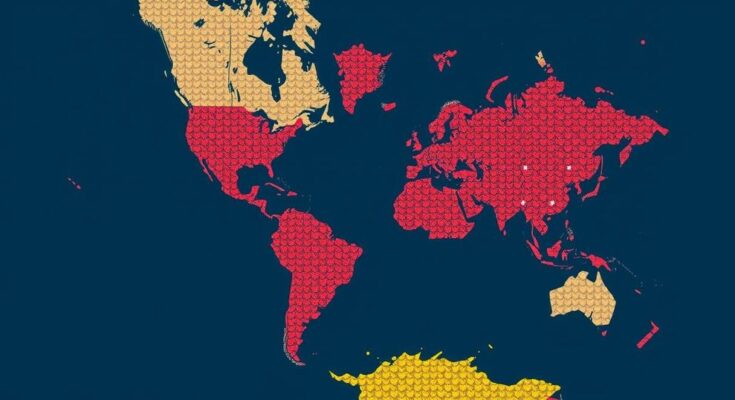The Biden administration will not extend a two-year humanitarian parole program for migrants from Venezuela, Haiti, Cuba, and Nicaragua. This decision impacts tens of thousands of individuals living in the U.S. amid an ongoing election period that may shape future immigration policies. Those affected must seek alternative legal status or face deportation.
The Biden administration has announced that it will not extend a two-year humanitarian parole program initially implemented for migrants from Venezuela, Haiti, Cuba, and Nicaragua, allowing the entry of such individuals into the United States on the condition of sponsorship. This decision carries significant implications for South Florida, which hosts the largest populations of these communities nationwide. The program was established in 2022 to create a legal pathway for migrants who often sought to cross the U.S.-Mexico border illegally while the administration simultaneously tightened its immigration enforcement policies. Initially enacting the program solely for Venezuelans, it later expanded to include Cuban, Haitian, and Nicaraguan nationals. This shift responded to observed patterns of illegal crossings among these groups. Federal data reveals that approximately 214,000 Haitians, 117,000 Venezuelans, 111,000 Cubans, and 96,000 Nicaraguans have utilized this humanitarian parole since its inception, allowing them temporary residence and work authorization in the United States. With the upcoming presidential elections in 2024, the Biden administration’s immigration policy may be taking on a stricter form as Democratic Vice President Kamala Harris seeks to project a tougher immigration stance. Opposing views are echoed by Republican candidate Donald Trump, who has criticized the administration’s policies and heightened negative rhetoric around migrants, particularly those from Haiti. Homeland Security has indicated that individuals whose two-year period concludes must pursue alternative legal status, leave the country, or face potential deportation to their home countries. Among the available paths are forms such as temporary protected status for Venezuelan and Haitian nationals, which permit them to remain in the U.S. due to severe conditions, including violence and natural disasters. New arrivals at the border may still apply for the program; however, it is specifically not applicable to those from Afghanistan or Ukraine.
The humanitarian parole program, initiated in 2022, aimed to address the increasing numbers of migrants from Venezuela, Haiti, Cuba, and Nicaragua attempting to enter the United States. The program provided a legal alternative to illegal border crossings, accommodating the escalating migration crisis while the government sought to impose stricter enforcement measures. The discontinuation of this program has raised concerns regarding the fate of current participants and future migrants seeking refuge in the United States, especially in a politically charged environment ahead of a presidential election.
In summary, the Biden administration’s decision not to extend the humanitarian parole program signifies a pivotal change in immigration policy, particularly affecting migrants from Venezuela, Haiti, Cuba, and Nicaragua. With significant ramifications for the communities residing in South Florida, this initiative’s cessation places added pressure on individuals nearing the end of their two-year status. As the political landscape evolves ahead of the 2024 elections, the future of immigration policy remains a critical concern for many affected parties.
Original Source: www.wlrn.org




